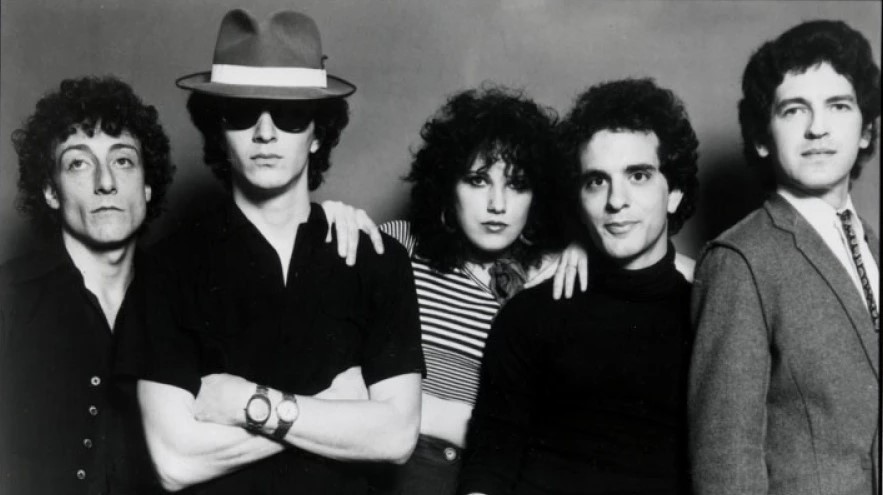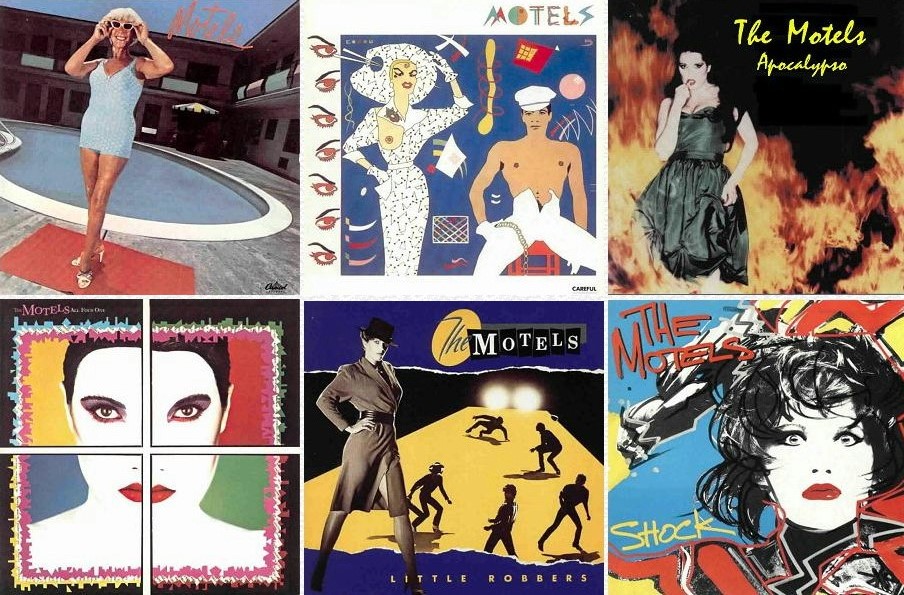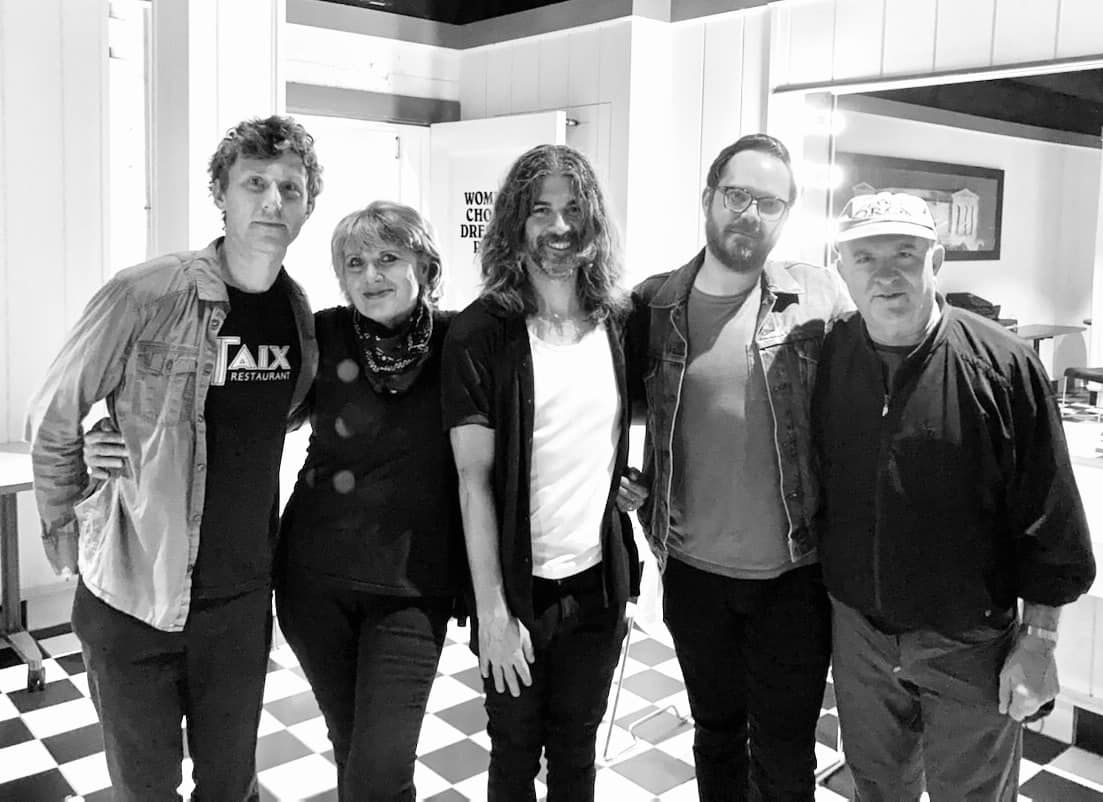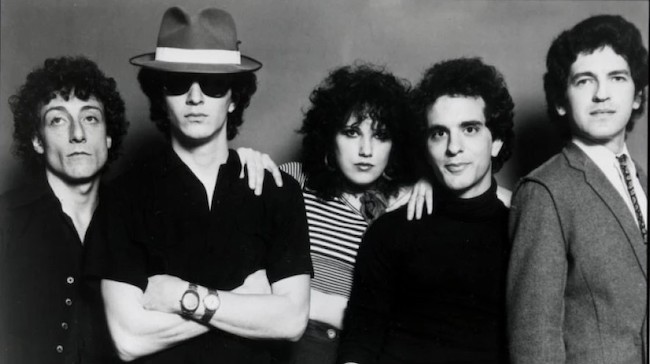
Sax/keyboard player Marty Jourard of Martha Davis & The Motels has checked in with a series of nine new interviews tracing the world-renowned New Wave rock band’s colorful history, with a spotlight on their classic Capitol Records era (1979-1987).
In his January-March 2023 conversations with veteran music journalist, former Capitol Records press department manager, and Grammy-nominated producer Stephen K. Peeples, Jourard recaps The Motels‘ pre-history and lineup changes in Berkeley and Los Angeles, 1971-77.
Often referring to his own daily calendars he kept for gigs each year, he details how Davis, the band’s founder, chief songwriter, and lead singer, eventually assembled the classic quintet lineup in 1978 with Jourard, his brother Jeff Jourard (guitar), Michael Goodroe (bass), and Brian Glascock (drums).
Marty Jourard details the frenzy the band built on the L.A. club scene in the six months leading up to their signing with Capitol Records in May 1979.
He takes a deep dive into each of The Motels’ five albums for the label (Motels, 1979; Careful, 1980; All Four One, 1982; Little Robbers, 1983; and Shock, 1985). He also compares working on the LPs with three different producers (John Carter, Val Garay, and Richie Zito) who had very different approaches to recording.

The band took a significant step with their 1980 release Careful.
Jourard discusses the band’s third Capitol album, All Four One, which includes their breakthrough single, “Only the Lonely.”
Jourard recounts the story behind Apocalypso, the original third album that Capitol rejected as “too weird” in 1982 but the band finally released in 2011.
He covers the band’s key personnel changes (including keyboardist Scott Thurston; guitarists Jeff Jourard, Tim McGovern, and Guy Perry; and drummer David Platshon); occasional use of session aces after the first two albums (among them drummer Craig Krampf, guitarist Waddy Wachtel, and bass player Arthur Barrow); major Motels U.S. and international tours (Europe, Australia-New Zealand, Japan) including outings with The Cars and The Go-Go’s and as headliners; The Motels’ chart successes in the States and abroad; and the much-viewed videos for hit singles like “Only the Lonely,” “Take the L,” and “Suddenly Last Summer.”
Jourard discusses the band’s fifth LP, 1985’s Shock, in two parts.
Jourard also re-traces the evolution of The Motels’ sound during the Capitol years, just as the analog age gave way to digital. He revisits Davis’ decision to disband the group to go solo in 1987 with her Policy LP; and what happened between then and the one-off reunion of the band’s final lineup in 2004 for VH1’s Bands Reunited.
He details how Davis rebuilt The Motels yet again in the Aughts, adding new members Clint Walsh (guitar), Nic Johns (keyboards, bass), and Eric Gardner (drums), and how he (Jourard) reconnected with Davis and rejoined the lineup full-time in 2013.
Finally, Jourard expresses how much he and Davis still enjoy playing classic Motels songs in 2023, with what has become the longest-lived incarnation of the band.

“It’s a very impressive collection of interviews, quite organized,” Jourard said after reviewing the series. “For a Motels fan, it’s certainly as much as anyone wants to know about the band’s history.” His 2016 book, Music Everywhere: The Rock and Roll Roots of a Southern Town, is about the scene in his hometown of Gainesville, Florida, in the 1960s and ’70s.
Motels superfan and YouTube commenter Carl Rudd agreed: “This is important and absorbing history of the best ‘new wave’ band of all time.”
Related: 10 songs that helped define New Wave


1 Comment
I really did enjoy the Motels back in their heyday. But I honestly don’t think I could give them the title: “the best ‘new wave’ band of all time.” I don’t actually know who I would nominate for that title, or who it rightfully belongs to, but the Motels don’t jump out as that to me, but rather one of many good bands of that era.